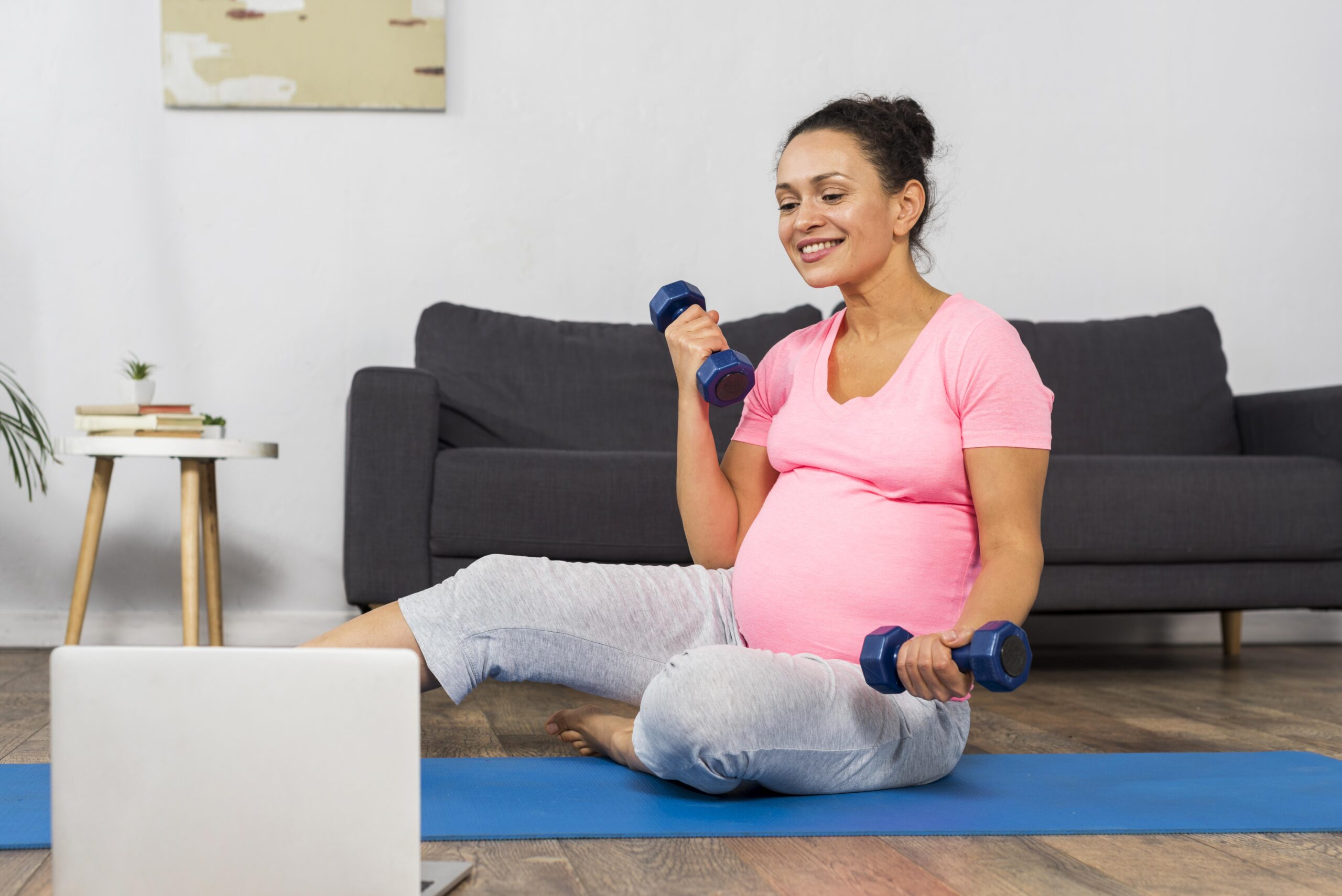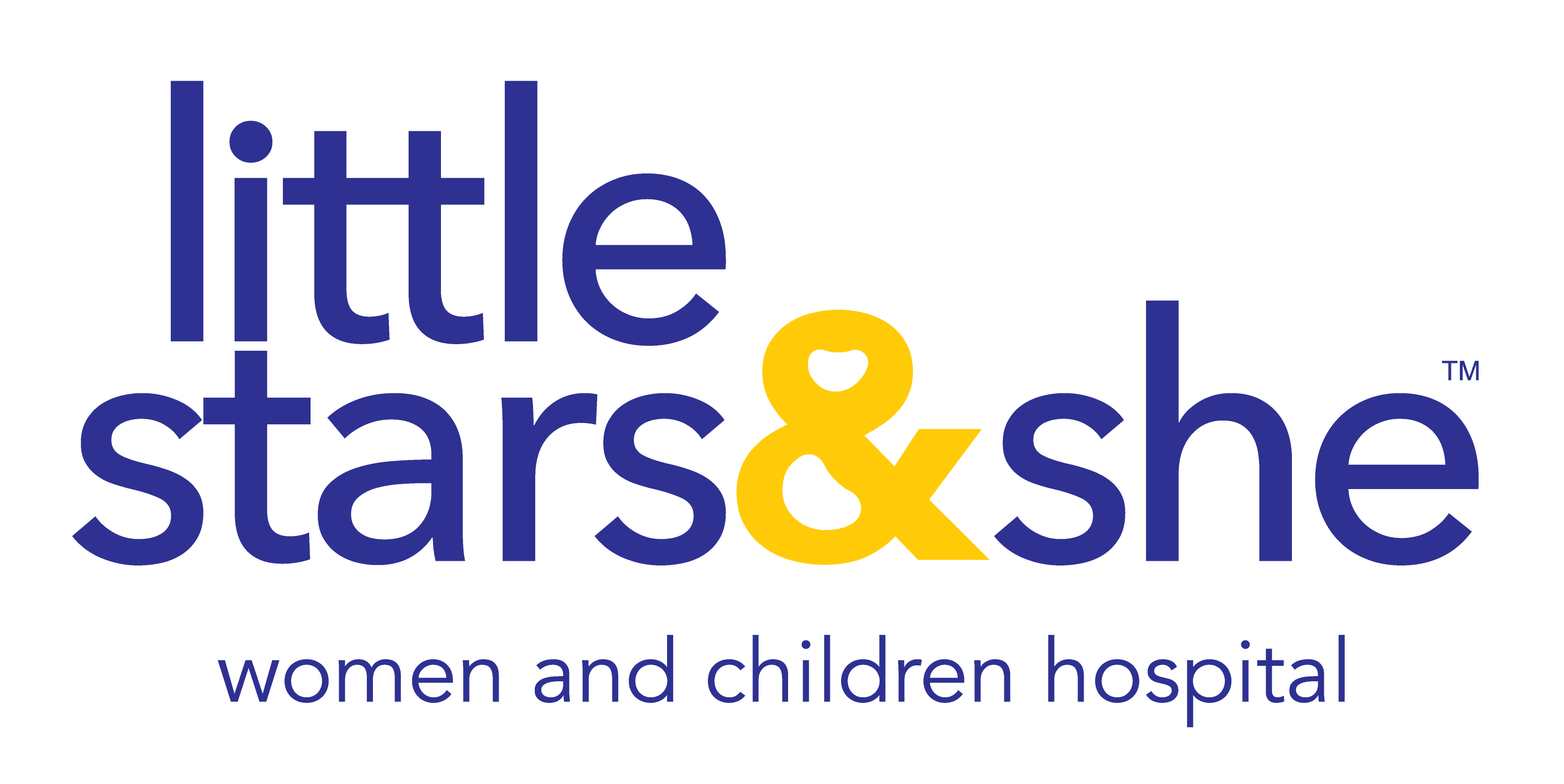
by Little Stars & She | Apr 25, 2024 | Pregnancy, Women Health
Pregnancy is a unique physical condition that requires a careful balance of nutrition to provide the best for both the growing baby and the mother. It is essential to make wise choices, especially during the summer months, to stay hydrated and healthy. Fortunately, with the right dietary strategies, pregnant women can maintain their health, stay comfortable, and keep hydrated. In this guide, you will find comprehensive information on how to optimize summer nutrition for a healthy pregnancy
Hydration is Key
Hydration is crucial during pregnancy, particularly in the summer. Pregnant women should aim to drink at least eight to ten glasses of water a day. This helps to prevent dehydration, which can lead to headaches, nausea, cramps, and even preterm labour. To make hydration a bit more appealing, try adding slices of lemon, cucumber, or a splash of fruit juice to your water.
Essential Nutrients for Summer
- Folate-Rich Foods: Folic acid is essential for the development of the baby’s neural tube. Summer offers a bounty of fresh folate-rich foods like spinach, asparagus, and broccoli. These can be enjoyed in salads or lightly steamed for a nutritious side dish.
- Calcium and Vitamin D: These are vital for developing a baby’s bones and teeth. While vitamin D is primarily absorbed from sunlight, it can also be found in foods like eggs and fortified milk. For calcium, turn to dairy products, which can be consumed as cold milk, yoghurt, or cheese to also help cool down in the heat.
- Iron: Iron helps prevent anaemia by increasing maternal blood volume. Lean meats, beans, and leafy greens are excellent sources of iron. Pair these foods with vitamin C-rich foods like oranges or tomatoes to enhance iron absorption.
Eating Small and Frequent Meals
Large meals can often feel too heavy during pregnancy and can exacerbate heat discomfort. Opt for smaller, more frequent meals to maintain energy levels and reduce the risk of indigestion, which is common during pregnancy. Snacking on fresh fruits, nuts, and whole grains can keep you satiated and provide steady nutrition throughout the day.
Cooling Foods
Add cooling foods to your diet to help beat the heat. Watermelon, cucumbers, and apples are not only hydrating but also provide essential nutrients and are easy on the stomach. Smoothies and cold soups like gazpacho are also excellent ways to stay nourished and cool. Traditional Indian Chaaz or buttermilk or a glass of lassi is equally good with great calcium reserves. However, avoid consuming street-side drinks like fresh lime soda, milkshakes, Falooda or kulfis or ice Gola, which can be bad for your tummy due to the risk of contaminated water.
Safe Food Practices
Food safety becomes even more important during pregnancy, as the immune system is somewhat compromised. Avoid foods that pose a risk of foodborne illnesses, such as raw fish, unpasteurized cheeses, undercooked meats, undercooked eggs, and raw milk. Always wash fruits and vegetables thoroughly to remove any pesticides or contaminants.
Avoid Caffeine and Sugary Drinks
Limit caffeine intake to less than 200 mg per day and steer clear of sugary drinks, which offer no nutritional benefits and can lead to excessive weight gain and spikes in blood sugar. Instead, opt for natural fruit juices diluted with water or herbal teas, which can also be enjoyed iced.
Exercise and Nutrition
Light exercise, such as walking or swimming, can improve circulation and aid digestion, enhancing the benefits of a healthy diet. However, always consult with a healthcare provider before starting any new exercise routine during pregnancy.
Conclusion
Maintaining a balanced diet during summer doesn’t just support your baby’s growth and development; it also enhances your overall well-being. At Little Stars & She, the best women’s hospital in Hyderabad, we understand the unique challenges that come with pregnancy. We are committed to providing expert care and guidance to ensure that both the little stars and their mothers receive the best possible support throughout their pregnancy journey. With the right nutritional approach, you can enjoy a healthy, vibrant summer and look forward to a happy, healthy baby.

by Little Stars & She | Apr 23, 2024 | Child Health, Pneumonia
How do you understand the symptoms?
The symptoms of most respiratory illnesses in children, starting from a common cold to complex pneumonia, may seem similar to a layman and, at times, quite confusing too. Common colds and pneumonia are such infections. At such a point many fail to take the right action for getting medical help, which can further lead to complications. That is why, It is very important to be aware of symptoms so that a child is not deprived of necessary medical care at a crucial time.
Understanding the Common Cold
The common cold is an upper respiratory tract viral infection caused by various viruses. It is most often seen in young children.
The symptoms of the common cold are :
- Runny nose: This is often the first symptom and it also comes along with congestion of the nasal passage.
- A mild cough and sore throat: Postnasal drip causes irritation thus leading to mild cough and sore throat.
- Low-grade fever: The sign may or may not present in children, however, fever could be mild.
- Irritability: irritability due to blocked noses in babies and kids, troubling them more during feeds is a very usual symptom.
These symptoms usually go away after about one week or ten days; however, they are more severe for about 24-48 hours before getting better. Though mostly handled at home, the common cold can also be managed through:
Rest: Aids in the process of recovering from illness and keeps the spread of the virus.
Hydration: Helps to soothe congestion while keeping the child’s throat moistened.
Comfort measures: Such as saline nasal drops and a cool-mist humidifier, can ease breathing difficulties.
Food and fluids: Breastfed babies should be fed at regular intervals so that they do not become dehydrated. To ease blocked nasal passages, try using saline nasal drops. Babies over 6 months should be fed warm foods like vegetable stock or chicken broth to ease the symptoms and fill their tiny tummies with nutritious food to help them recover faster.
Honey, ginger or tulsi leaves or any homemade concoctions should not be given to babies below 6 months. Children above 1 year can be treated with some home remedies to ease symptoms, Do not administer adult medications to children. Do not use rubs meant for adults over children.
Parents beware not to use any OTC medicines for children below two years of age.
For easing common cold symptoms. For infants below 3 months, it doesn’t matter how mild the symptoms might be, a visit to a paediatrician is a must.
However, if symptoms persist or get worse over time, parents should seek proper medical attention from certified paediatricians. Some childhood illnesses require guidance from the best pediatric doctor in Hyderabad and, therefore, play a critical role in maintaining good health.
Could it be Pneumonia? How to recognise the symptoms?
Pneumonia is a respiratory illness that noticeably affects the lungs and is caused by different pathogens such as bacteria, viruses and fungi. In contrast to the common cold, pneumonia causes inflammation of air sacs in one or both lungs, which can fill with fluid or pus, leading to:
- High fever, Cough, chills, fast breathing, and breathing with grunting or wheezing sounds are common in pneumonia. As the infection progresses it can lead to difficulty in breathing and chest pain, working hard to breathe, vomiting, and chest pain to be considered an emergency. Immediate medical evaluation, especially from the finest pediatric surgeon in Hyderabad who can give you an accurate diagnosis and treatment.
Can the common cold progress to pneumonia?
At times, there may be a subtle progression from the ordinary flu to pneumonia. One should therefore look out for danger signs that call for immediate action:
- Persistent high fever: From 101 to as high as 105 degrees F, Pneumonia has a higher temperature that does not come down even after medicine is administered.
- Difficult respiration/wheezing: If whistling sounds during inhalation occur, it’s usually difficult to get air into the lungs, which means you need to seek a doctor’s help immediately.
- No response to remedies meant for minor colds: See your pediatric surgeon or physician if symptoms don’t improve using OTC drugs meant for simple flu.
The Role of Pediatric Specialists
When a child’s respiratory disease symptoms become worse, the intervention of pediatric specialists is essential. Pediatric surgeon Hyderabad houses some of the finest pediatric doctors and surgeons who are equipped with the knowledge and tools necessary to treat extreme cases like pneumonia. They offer:
- Advanced Diagnostics: These include chest X-rays as well as blood tests to enable accurate diagnosis of pneumonia.
- Specialized Treatments: From antibiotics for bacterial pneumonia to supportive care for viral cases.
- Comprehensive Care: Not only addressing the immediate infection but also any underlying or resultant health issues.
Conclusion
Distinguishing between the common cold and pneumonia is critical for a child’s well-being. While both conditions share respiratory symptoms, pneumonia presents with more severe signs that demand immediate attention. Recognizing these symptoms early and consulting with the best pediatric doctor in Hyderabad can make a significant difference in your child’s recovery and health. As parents, trusting your instincts and seeking expert advice at the first sign of serious illness is paramount.

by Little Stars & She | Apr 22, 2024 | Pregnancy, Prenatal Excercise
Staying active is important during pregnancy and is very essential, except for those who may have been recommended bed rest. If your pregnancy is a normal healthy one, you should plan on at least 2-3 hours of moderate-intensity activity each week. But, as summer weather starts to get warmer, you might find exercising while pregnant increasingly uncomfortable, or even start to wonder if it’s safe for you and your baby to get active in the heat. Let us guide you through a safe prenatal exercise plan.
Time Your Workouts Wisely
- Avoid Peak Heat Hours: Schedule your workouts early in the morning or later in the evening when temperatures are cooler. Avoid exercising outdoors between 10 a.m. and 4 p.m., which are typically the hottest parts of the day.
- Choose Indoor Activities: On days when the heat is unbearable, opt for indoor activities. Swimming in an indoor pool, walking on a treadmill, or joining a prenatal yoga class in an air-conditioned space can be excellent alternatives.
Dress Appropriately
- Wear Light-Colored, Breathable Clothing: Choose loose-fitting clothes made from natural fibres like cotton or moisture-wicking fabrics designed for exercise. Light colours reflect the sun’s rays better than darker shades, helping to keep your body cooler.
- Protect Your Skin: Wear a wide-brimmed hat and sunglasses to protect your face and eyes from the sun. Use sunscreen with an SPF of at least 30, and reapply it every two hours or more often if you’re sweating heavily.
Stay Hydrated
- Increase Your Fluid Intake: Hydration is important during summer but it is even more critical when you are pregnant and exercising in the heat. Drink water before, during, and after your workout. Carrying a water bottle to remind yourself to drink regularly can help.
Add a spoonful of chia seeds and zest of lemon or orange into your bottle of water for taking sips through your physical activity.
- Avoid Caffeine and Sugary Drinks: These can lead to dehydration. Stick to water or electrolyte-replacement drinks if you’re engaging in prolonged or particularly sweaty exercise sessions.
Modify Your Exercise Intensity
- Listen to Your Body: Pregnancy is not the time to push your limits, especially in the heat. If you feel dizzy, faint, or overheated, stop exercising immediately. These could be signs of heat exhaustion or other heat-related illnesses.
- Lower the Intensity: Choose moderate exercise that allows you to comfortably carry on a conversation. Walking, gentle swimming, and stationary cycling are good options.
Monitor the Humidity and Air Quality
- Humidity Factor: High humidity can prevent your sweat from evaporating, which inhibits your body’s ability to cool itself. On very humid days, reduce your exercise intensity or choose an indoor activity.
- Air Quality Alerts: Pay attention to air quality reports, especially if you live in an urban area. Poor air quality can affect your respiratory system and that of your growing baby.
Take Regular Breaks and Cool Down
- Incorporate Breaks: Take frequent, short breaks during your exercise session to rest and hydrate. This helps manage your body temperature and energy levels.
- Cool Down Gradually: After exercising, allow your body to cool down gradually by slowing the intensity of your activity and stretching gently. This helps prevent muscle stiffness and promotes circulation.
Consult Your Healthcare Provider
Before starting or continuing any exercise regimen during pregnancy, especially in the summer heat, consult with your healthcare provider. They can provide personalized advice based on your medical history and pregnancy.
Maintaining an active lifestyle during pregnancy is vital, and with the right precautions, it can be safe even during the hot summer months. At Little Stars & She, the leading women’s hospital in Hyderabad, we encourage expectant mothers to take care of their health in all seasons. By following these tips, you can enjoy a safe, healthy, and active pregnancy throughout the summer. Remember, every step you take towards maintaining your fitness helps pave the way for a healthier delivery and postpartum recovery.

by Little Stars & She | Apr 20, 2024 | Uncategorized
Summer is a wonderful time for children to enjoy playing outdoors and exploring new activities. However, the rising temperatures bring a set of challenges, especially for young ones. Parents and caregivers should ensure that their children stay healthy and safe through the warmer months. Here are some handy tips for parents on making the summer a happy and healthy one for their children.
Keep Them Hydrated
- Frequent Fluid Intake: Children are more susceptible to dehydration than adults, especially during playtime. Ensure they drink water throughout the day. Fun tip: offer colourful water bottles or add natural flavours like berries or citrus to make hydration exciting.
- Add a lot of hydrating Foods: Serve snacks that boost hydration. Watermelon, cucumbers, and strawberries are not only hydrating but also nutritious and kid-friendly.
Protect Their Skin
- Sunscreen is a Must: Apply broad-spectrum sunscreen with an SPF of at least 30 to your child’s skin 30 minutes before they go outside, and reapply every two hours or immediately after swimming or sweating.
- Create Shade: Use hats, sunglasses, and lightweight, long-sleeved clothing to cover your child’s skin when out in the sun, especially during the peak hours of 10 a.m. to 4 p.m.
- Plan Indoor Breaks: Balance outdoor time with indoor activities during the hottest parts of the day to avoid overheating.
Heat Safety
- Cool Spaces: Utilize fans or air conditioning to keep indoor environments cool during peak heat times. If air conditioning isn’t available, plan visits to public places that are air-conditioned, like libraries or shopping malls.
- Cool Baths: Help them cool down with a tepid bath or a gentle spray from a hose in the backyard. However make sure not to bathe your child with cold showers or just after coming back from outdoors. Always use lukewarm water for bathing. The immediate change of temperature can lead to variations of body temperature.
Nutritious and Light Meals
- Lighter Meals: Opt for smaller, more frequent meals. Heavy meals can raise body temperature and feel uncomfortable.
- Seasonal Fruits and Veggies: Make the most of summer’s fresh produce. Serve lots of fresh fruits and veggies as snacks, in smoothies, or frozen for a tasty treat.
Safe and Fun Exercise
- Morning or Evening Play: Schedule outdoor play times during cooler parts of the day, such as early morning or late evening.
- Water Activities: Activities like swimming are excellent for staying cool while getting exercise. Just always ensure active supervision and appropriate safety gear. Use sunblock and necessary swim gear to suit the environment.
Travel Tips
- Preparation is Key: if you are planning an outing or a road trip, make sure to pack essentials including water, healthy snacks, sunscreen, a first-aid kit, and extra clothing.
- Stay Informed: Keep an eye on weather forecasts to avoid extreme heat and plan your activities accordingly.
Conclusion
Summertime with your child can be full of fun and memorable experiences if you take the right precautions to manage the heat. At Little Stars & She, one of the leading paediatric hospitals in Hyderabad, we are dedicated to providing you and your family with the care and support you need to ensure a safe, healthy summer. From preventive health tips to comprehensive care, we’re here to help your little star shine brightest, even under the summer sun. Keep these tips in mind as you plan your summer days, and remember, we’re just a call away whenever you need us.

by Little Stars & She | Apr 19, 2024 | Ovarian Cysts, Women Health
Introduction
Ovarian cysts are fluid-filled sacs that can form on or within the ovary. Ovarian cysts are very commonly found in reproductive-aged women and are usually ignored as long as they don’t cause any pain or discomfort. Generally harmless and go away on their own without medical intervention. At times, ovarian cysts can grow in size and burst, causing further complications. Emergencies like this need immediate medical help. To ensure that you receive the best possible care, it’s important to seek out specialized gynaecological care. The best hospital for pregnancy in Hyderabad can provide you with accurate information, the latest diagnostic tools to detect ovarian cysts, appropriate diagnosis, and effective treatment. Don’t take any risks with your health. Put your trust in the hands of experts who prioritize your well-being.
What are Ovarian Cysts?
Ovarian cysts are fluid filled cysts found on the ovary. Hormonal problems, Endometriosis, Pregnancy, and Severe pelvic infection are a few possible causes of ovarian cysts. Ovarian cysts can be categorized as
- Functional Cysts: The most frequent type of functional cyst develops during menstruation and naturally disappears without intervention.
- Dermoid Cysts: Dermoid cysts occur when tissue collects under the skin. These cysts may contain hair, teeth or nerves. They usually appear at birth. Dermoid cysts often form on your head and neck but may also be in your ovaries, on your spine or elsewhere in your body
- Cystadenomas: Noncancerous overgrowths that develop on the ovarian surface.
- Endometriomas: On the other hand, endometrial tissue growing outside the uterus leads to its formation.
Many ovarian cysts, as said earlier, are harmless, meaning they are non-cancerous, but at times can cause complications, including rupture, haemorrhage, and torsion, which are considered gynaecological emergencies. Approach the best hospital in Hyderabad for the right diagnosis and management of ovarian cysts.
Symptoms and Diagnosis
Cysts in the ovaries are often inconspicuous as they have few or no symptoms. Nonetheless, these symptoms may include:
- Pelvic Pain: An aching pain in the lower abdomen on the sides, where the cyst is present.
- Bloating or swelling: Abdominal discomfort with fullness.
- Menstrual irregularities: Change in menstrual cycle length, frequency or severity.
- Pain during intercourse: Especially felt on the side that has cysts.
Different procedures are used by the best gynaecologists of Hyderabad for diagnosis and treatment which include:
- Pelvic exams: To feel for any abnormal growths on or around the ovaries.
- Ultrasounds: This can be used to produce pictures of the ovaries and to detect cysts.
- Blood tests: These are done to establish if markers of cancer are found or if abnormal hormonal levels suggest the possible presence of cysts.
When is Medical Intervention Needed?
Not all ovarian cysts require medical intervention. The decision depends on:
- Cyst size and appearance: Larger or irregularly shaped cysts may need closer monitoring or removal.
- Symptoms: Persistent or severe symptoms may necessitate treatment.
- Age: Postmenopausal women have a higher risk for ovarian cancer, requiring more vigilant monitoring of cysts.
Medical attention is crucial for complications such as:
- Ovarian torsion: When a cyst causes the ovary to move from its original position, potentially cutting off blood supply.
- Cyst rupture: This can lead to severe pain and internal bleeding, requiring immediate medical intervention.
Treatment Options
Management of Ovarian Cysts varies based on factors such as cyst size, symptoms, age and overall health of the patient. These include:
- Watchful Waiting: Follow up small asymptomatic cysts over time to see if they vanish naturally.
- Medication: Hormonal birth control methods can be given to prevent the formation of new cysts but not to reduce the size of existing ones.
- Surgery: Surgery may be necessary in cases of large, continuing, or symptomatic cysts. Many times, top Obstetricians use minimally invasive techniques like laparoscopy to remove the cysts without adversely affecting ovary function.
Factors influencing treatment decisions:
- Cyst characteristics (size, type, and appearance)
- Symptom severity
- Patient’s reproductive age and health status
- Potential impact on fertility
Role of Expert Gynecological Care
Consulting with the best gynaecologist in Hyderabad is crucial for the personalized and effective management of ovarian cysts. This ensures that treatments are tailored to meet individual health needs and preferences.
Conclusion
In conclusion, understanding, diagnosing, and effectively managing ovarian cysts is crucial for women’s health. With a variety of treatment options available, from watchful waiting to advanced surgical procedures, the key to successful management lies in personalized care tailored to individual needs. This underscores the importance of consulting with the best gynecologists, particularly at best gynecologist in Hyderabad, known for their expertise in gynecological care.





